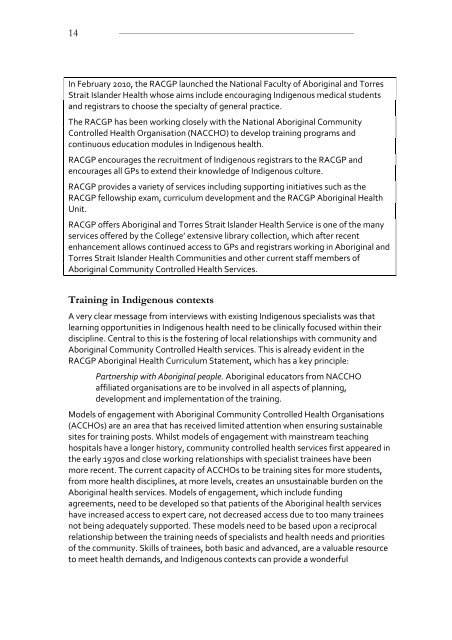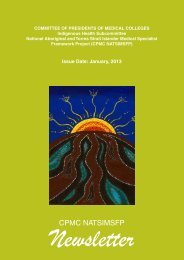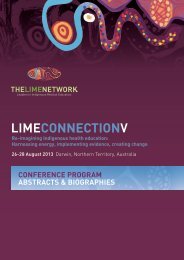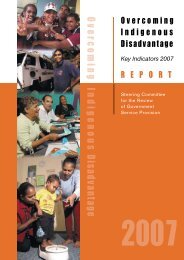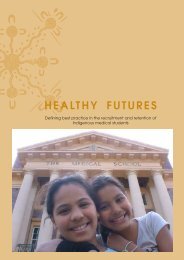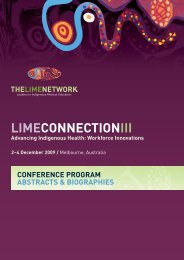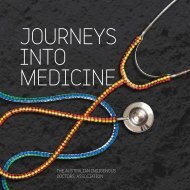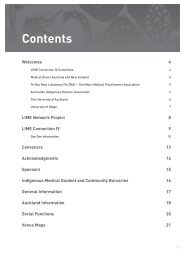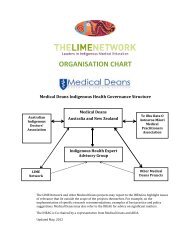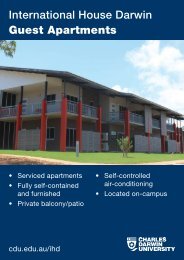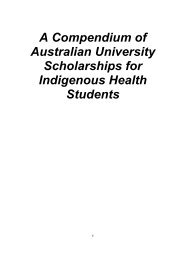View - LIME Network
View - LIME Network
View - LIME Network
Create successful ePaper yourself
Turn your PDF publications into a flip-book with our unique Google optimized e-Paper software.
14In February 2010, the RACGP launched the National Faculty of Aboriginal and TorresStrait Islander Health whose aims include encouraging Indigenous medical studentsand registrars to choose the specialty of general practice.The RACGP has been working closely with the National Aboriginal CommunityControlled Health Organisation (NACCHO) to develop training programs andcontinuous education modules in Indigenous health.RACGP encourages the recruitment of Indigenous registrars to the RACGP andencourages all GPs to extend their knowledge of Indigenous culture.RACGP provides a variety of services including supporting initiatives such as theRACGP fellowship exam, curriculum development and the RACGP Aboriginal HealthUnit.RACGP offers Aboriginal and Torres Strait Islander Health Service is one of the manyservices offered by the College’ extensive library collection, which after recentenhancement allows continued access to GPs and registrars working in Aboriginal andTorres Strait Islander Health Communities and other current staff members ofAboriginal Community Controlled Health Services.Training in Indigenous contextsA very clear message from interviews with existing Indigenous specialists was thatlearning opportunities in Indigenous health need to be clinically focused within theirdiscipline. Central to this is the fostering of local relationships with community andAboriginal Community Controlled Health services. This is already evident in theRACGP Aboriginal Health Curriculum Statement, which has a key principle:Partnership with Aboriginal people. Aboriginal educators from NACCHOaffiliated organisations are to be involved in all aspects of planning,development and implementation of the training.Models of engagement with Aboriginal Community Controlled Health Organisations(ACCHOs) are an area that has received limited attention when ensuring sustainablesites for training posts. Whilst models of engagement with mainstream teachinghospitals have a longer history, community controlled health services first appeared inthe early 1970s and close working relationships with specialist trainees have beenmore recent. The current capacity of ACCHOs to be training sites for more students,from more health disciplines, at more levels, creates an unsustainable burden on theAboriginal health services. Models of engagement, which include fundingagreements, need to be developed so that patients of the Aboriginal health serviceshave increased access to expert care, not decreased access due to too many traineesnot being adequately supported. These models need to be based upon a reciprocalrelationship between the training needs of specialists and health needs and prioritiesof the community. Skills of trainees, both basic and advanced, are a valuable resourceto meet health demands, and Indigenous contexts can provide a wonderful


